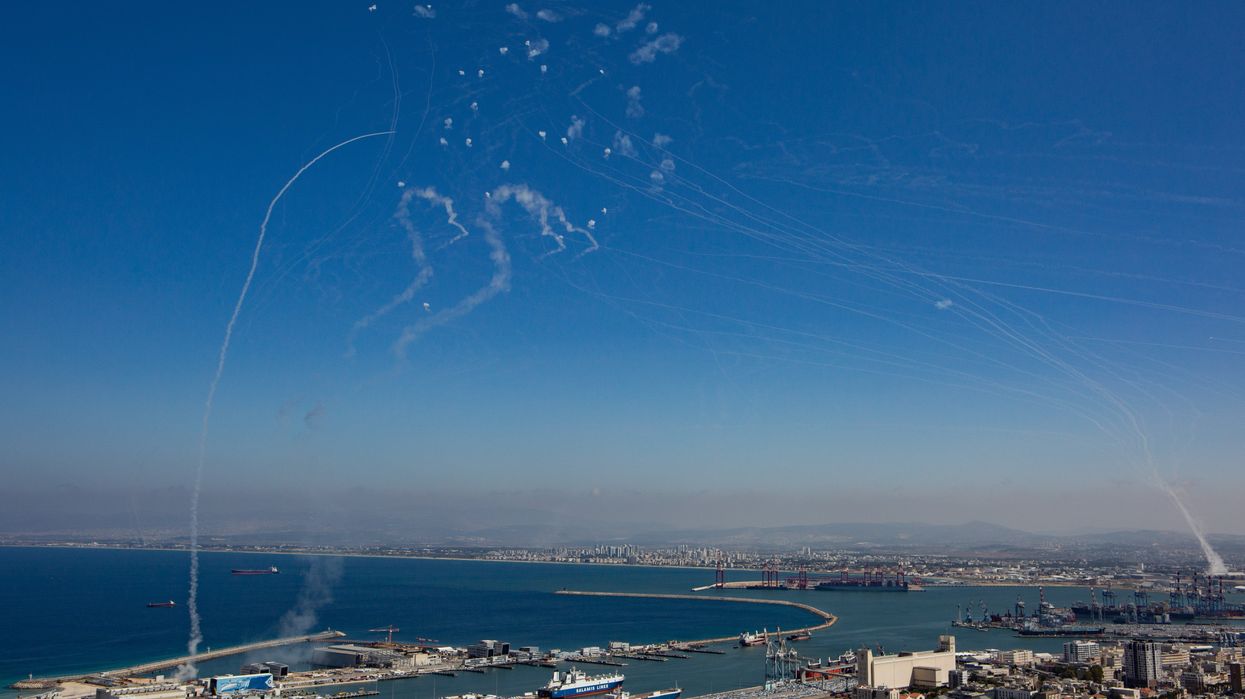Johnson is a United Methodist pastor, the author of "Holding Up Your Corner: Talking About Race in Your Community" and program director for the Bridge Alliance, which houses The Fulcrum.
As rockets are once again streaking across the skies of the Middle East and the cries of the bereaved echo through its ravaged streets, the Rev. Martin Luther King Jr.'s words and teachings reverberate like a mournful prayer in my spirit. They stir within me a deep sociopolitical and theological question, "Is 'just war' just?”
In this ongoing conflict, as in all wars, nation-states are forced to confront the terrible paradox of the just war theory — that the pursuit of justice can sometimes demand the violence it seeks to vanquish.
Just war doctrine roots trace back to the writings of St. Augustine and St, Thomas Aquinas. Augustine argued that war could be a purpose for the restoration of peace, while Aquinas' commentary is often interpreted as giving allowance to war. Though war was thought to be an inherent evil, there were certain conditions for its justification, including just cause (self-defense or the protection of innocents), last resort (all peaceful means exhausted), probability of success, proportionality (the ends justify the means) and right intention (the goal is peace, not conquest or domination).
However, even when these criteria are met, war inevitably brings about indiscriminate suffering, violating the fundamental principle of noncombatant immunity. Presently, Israel and Hamas are claiming cause. Israel argues its right to self-defense against indiscriminate rocket attacks, while Palestinians point to decades of occupation, blockade and creeping annexation.
The moral calculus of war becomes even more fraught when geopolitical alliances are factored in. The United States has long been Israel's staunchest backer, providing billions in military aid each year. This unwavering support, rooted in a complex mix of strategic interests, ideological alignment and domestic political pressures, significantly bolsters Israel's military might. Conversely, Iran supports Hamas and Hezbollah, funneling weapons and cash to bolster their military capabilities. Tehran views these relationships as a means to project power, challenge Israeli dominance and advance its regional agenda. These external influences further complicate the conflict, making a lasting resolution more elusive.
Such patron-client relationships further entrench the conflict, making a lasting resolution more elusive. Over the years, such relations have created a destructive cycle where escalation by one side is met with counter-escalation by the other, fueled by their respective backers; amidst this tangled web of alliances, the humanitarian cost mounts. Innocent civilians are often left to bear the burden of violence. Thus, leaving the international community struggling to navigate these competing interests hampers efforts to broker peaceable solutions. The longer military conflict persists, the greater the moral imperative to protect innocent lives and arrive at a point of just resolution.
Pursuing peace can be supported even at the height of cyclical violence when retribution continues. The efforts of good-faith actors or humanitarians demand more than a mere ceasefire. What is truly necessary is a commitment to address the underlying grievances, the longstanding grievances fueling historic conflict.
Despite its flaws, just war theory, for some, acts as a moral framework for judgment of their actions in the crucible of conflict. But it must be complemented by a tireless dedication to nonviolence and restorative justice championed by prophetic arbitrators like Dr. King and Rabbi Abraham Joshua Heschel. In reflection of devastation and unrest across the region, we are reminded that justice is not found in the rubble of war but in acknowledging the dignity and sacredness of all human life.
The query is whether war is a just act. It ought to serve as a mirror held up to the soul of humanity in assessing its most authentic reflection. Forcing nations and individuals alike to wrestle with our respective capacity for cruelty and compassion, our penchant for division and our yearning for unity. As allied forces and regional actors involved in the Israeli-Palestinian conflict consider their next moves, pray all remember that true strength lies not in military might but in the courage to choose peace. All parties should prioritize the most vulnerable while seeking to enact justice. A justice that sincerely seeks peace — respecting and embracing all, regardless of their faith or nationality. Only time will tell.




















Trump & Hegseth gave Mark Kelly a huge 2028 gift